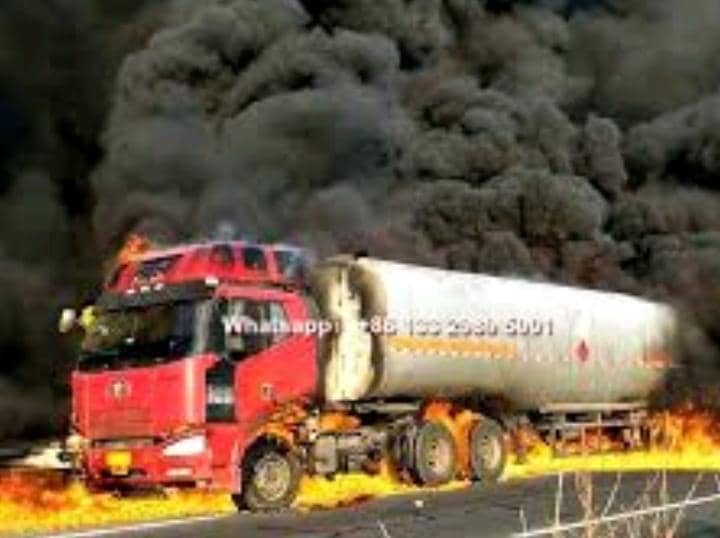The federal government has banned fuel tankers with a 60,000-litre capacity from loading and transporting petroleum products from the various depots across the country.
Chief executive of the Nigerian Midstream and Downstream Petroleum Regulatory Authority (NMDPRA), Farouk Ahmed, who announced the ban, which takes effect from March 1, 2025, said this was part of the measures taken by the federal government to curtail the incidences of tanker explosions and fires in the country, following a series of tragic explosions that have claimed numerous lives.
Recall that data made available revealed that nearly 493 fatalities have occurred from tanker-related incidents over the past three years, with 121 deaths already reported in just the first two months of 2025 alone.
Ahmed, who was represented by executive director, Distribution, Systems, Storage and Retailing Infrastructure, Ogbugo Ukoha, during a news briefing in Abuja on Wednesday, also said the ban will extend to the loading or transportation of petroleum products on any truck in excess of 45,000 litres by the fourth quarter of 2025.
“The breaking news from today today’s meeting comprising DSS, FEMA, Federal Fire Service, Road Safety, NATO, NUPENG, MEMAN, PETROAN, IPMAN, DAPMAN, SON, ONSA, is that beginning 1st March, any truck with an axle load that is carrying more than 60,000 litres of hydrocarbon will not be allowed to load at any loading depot.
“Let me repeat that again. Beginning 1st March, trucks with a capacity in excess of 60,000 litres will not be allowed to load in any loading depot for petroleum products.
“By Q4 of 2025, we will also preclude the loading or transportation of petroleum products on any truck in excess of 45,000 litres. So that is the breaking news for today.
“This is just one out of ten measures that stakeholders have agreed that need to be addressed if we want to mitigate the high level of trucks in transit accidents.
“The important thing about this is that for the first time consensus was built amongst all stakeholders and we are continuing to encourage that we work together cohesively to deliver a safe transportation of petroleum products across the country,” Ahmed stated.
